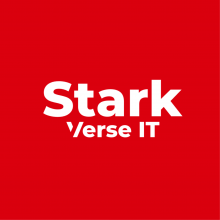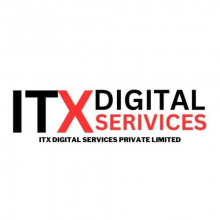
There are 11 Companies in Sri Lanka
that provide Hardware Services!
Sri Lanka is and has been for some years always been considered in the top 50 countries to outsource services, which is also related to the IT industry being one of the most important industries in the country. The history of the industry in Sri Lanka started in 1976 with the creation of the Computer Society of Sri Lanka, but the Business Process Outsourcing (BPO) industry started around the year 2000, and its development has been increasing since then to become one of the top destinations for foreign countries to outsource their services.
Discover Top IT Companies in Sri Lanka specialized in Hardware and other related services. Find the best IT service providers for your projects.
Hardware service is an aspect of IT management that specifically deals with the physical components of information technology. The process encompasses hardware acquisition, continuous maintenance throughout its lifespan, and responsible disposal of outdated parts. Expert hardware asset managers collaborate with various departments and stakeholders across all levels within an organization. According to recent statistics, up to 30% of the total IT budget is spent on hardware, software, and related maintenance and support expenses.
Handpicked companies • No obligation to hire • 100% risk-free
Featured Companies in Sri Lanka
This month, the following Hardware companies managed to provide an outstanding service and support. It's worth taking a look.
A fast-growing IT and business solutions company, empowering global businesses with cutting-edge technology and digital innovation.
LKProfessionals delivers end-to-end IT services, empowering businesses with innovative, reliable, and scalable digital solutions.

Stark Verse IT Verified Company
Kilinochchi, Sri Lanka Head office in: Sri Lanka
StarkVerse IT offers innovative web, mobile, POS, cloud & digital marketing solutions tailored to boost business growth across Sri Lanka.
Explore Top Hardware Companies in Sri Lanka
Lapnos is an international development firm that works with governments and public institutions across South Asia and Africa.
Services:
Cyrus Information Technologies is a leading solutions integrator specializing in hardware, software, managed services and tech support company
ITX Digital Services Private Limited is a leading provider of comprehensive and tailored IT solutions, empowering small businesses to achieve their
Sri Lanka’s leading provider of well-engineered and hybrid networking solutions, IT infrastructure services, and smart technology systems.
Services:
CYBER HUSTLE is all about Empowering your Digital Game. We are a thriving Web design & Digital marketing agency based in Colombo, Sri Lanka.
Services:
Expediting Business Outcomes
Services:
At Drave Space, we are dedicated to delivering exceptional software solutions tailored to meet your unique business requirements.
Filter Hardware Companies in Sri Lanka by Cities
Find the right tech company near you or from a specific city. Some of the best companies might be located in smaller cities.
Find more Hardware companies around the world
TechBehemoths is the world's most advanced and user-friendly platform to match IT Companies with real clients without hustle.
The IT Industry in Sri Lanka: Companies, Insights & Data
Sri Lanka has consistently been considered one of the top 50 countries for outsourcing services. This status is also related to the country's IT industry being one of its most important sectors. The history of the industry in Sri Lanka started in 1976 with the creation of the Computer Society of Sri Lanka, but the Business Process Outsourcing (BPO) industry started around the year 2000, and its development has been increasing since then to become one of the top destinations for foreign countries to outsource their services.
The country is a development center for many big companies from all over the world, such as J.P. Morgan & Co., Qatar Airways, Microsoft, and Google, and other companies from countries like Japan, Sweden, Norway, North America, Australia, and the UK. It is estimated that the profit of outsourcing services to Sri Lanka can cost 70% of the price it would cost in the same country as the companies.
The next projection of the future for the country is to reach 5 USD billion in exports by 2022 and create 200.000 jobs. Related to this data, the country also achieved a target of 1 USD billion in the year 2016. In the first 7 months of 2025, the total exports are worth $10 billion. The ICT sector reached approximately $1.7 billion, and by 2030, is expected to reach $5 billion.
With the fast growth of the IT industry, the government took action to boost the possibility to be able to learn IT-related technologies in the country and improve IT education in the country. Sri Lanka also ended the Indo-Sri Lankan “Comprehensive Economic Partnership Agreement” because it was causing unemployment for Sri Lankan professionals.
Why Should You Work With Sri Lankan Companies?
Some of the reasons for working with IT companies from Sri Lanka are the low costs of outsourcing the services there, and also the good education of the country’s professionals. It is estimated that the costs can be 30% lower. Also, the minimum wage in Sri Lanka is €89.37, and we will talk in-depth about this in the following section.
The education in the IT sector is rich in knowledge because the IT industry is one of the most important ones in the country. You can find highly educated graduates, and also, there’s one more aspect to talk about, and it is the law.
The law about foreign business and commercial law follows the principles of British commercial law and has an independent judiciary. Sri Lanka has also signed some international treaties about intellectual property rights, electronic transactions, and computer crimes, and it is one of the most rigorous in this region. In addition to this, the country has signed a Free Trade Agreement with Singapore (SLS FTA) that eliminates 80% of all tariff lines through staging periods of up to 15 years, and this has come into force since 1st of May 2018.
Their English level is better in relation to other neighboring regions, especially in the city zones, and they are friendly by nature, which makes doing business so much easier.
What to Know When Working With IT Companies From Sri Lanka?
When thinking about working with IT companies from Sri Lanka, you have to be aware of the geopolitical situation of the country and its past, as well as the current situation of the sector. First of all, when talking about minimum wage in Sri Lanka being $89.37 a month (the equivalent of 27.000 rupees, the official coin of the country), you can think about why there’s only a 30% difference between outsourcing the projects to this country with such a big difference in salaries, and the answer is lies in the difference in purchasing power and payment gap between employees and employers that earn a huge profit from these operations. This means that you can have workers of a certain quality, but not always comparable to more developed countries, with better salaries and work conditions.
Also, you need to be aware of the country past and present history, and this includes a very recent civil war that lasted 26 years (from 1983 to 2009), a sometimes unstable security situation in relation to the terrorist attacks suffered from moderate frequency, the last one was on April 2019 and talking about this last attack, Sri Lanka is also a very conservative and religious country, especially for women (Buddhism is part of life in 70% of the people).
Instability, the wage gap between the richest and the poorest, and common scams, not only for tourists but also for business, are things to be aware of when doing business with IT companies from Sri Lanka.
How Reliable Are IT Companies From Sri Lanka?
To answer this question, we will have a look at some studies and other parameters to be able to measure the reliability of Sri Lankan IT companies. We have to refer to a 2008 study by the University of Moratuwa in Sri Lanka, which we will take with a grain of salt for the few objective references that can be found on this subject, and the source of the information. We will also take into account other aspects in relation to the other questions we answered above.
There’s a case study called “Reliability of effort estimates in offshore software companies in Sri Lanka” that can be found in the Digital Library of the University of Moratuwa. The goal is to find out the reasons affecting the reliability of projects in Sri Lanka's offshore IT organizations and recommendations made as a result of this research study.
This case study concludes that the credibility and reliability of IT companies in this sector are subordinated to subjective beliefs of concrete experiences of prejudice, although, from the data we know, not all unreliability is due to this, as Sri Lanka is a country where common scams are certainly frequent. This can apply to the IT industry, but not with the same magnitude.
To conclude this section, we will say that the reliability of IT companies is certainly compromised by the fear of fraud, but as in every region or country, there are always good companies and bad companies. It is advisable to find companies with proven reliability to avoid fraud, and that work with the international standards of quality.
How Does the IT Industry in Sri Lanka Relate to the Neighboring Regions/Countries?
To start developing this section, we will analyze one important and basic aspect of outsourcing projects to this type of country that is still developing. Internet access could potentially curtail the industry’s growth. Although local telecoms operator Mobitel has developed the implementation of 4.5G LTE technology. The average connection speed is 23.77 Mbps in the country, in relation to other countries: Indonesia (28-30), India (136.53), Malaysia (168.94), and Vietnam (163).
Another aspect that can influence the industry development is the high rental prices in Colombo’s commercial property sector, which is the most populated city in the country, although it is not the capital of Sri Lanka. When outsourcing services, one of the most important things is cost reduction, so this is an important aspect to talk about. This aspect in the neighboring countries is less problematic because their development of the industry is more advanced at this time.
Sri Lanka is surrounded by one of the giants of outsourcing services, which is India, a very powerful country that remains untouchable in position number 39 in accordance with the 2024 Global Innovation Index, where Sri Lanka remains in number 89.
Conclusion
The conclusions of this short analysis on Sri Lanka IT industry are as follows, Sri Lanka is one of the top 20 best Business Process Outsource destinations, and the biggest industry activity is outsourcing services, you have to be aware of the unstable situation and the specific characteristics of this country such as internet connection, reliability of the industry, IT level of education of the graduates in this country and of course prices, for this it is recommended to work with companies that have proven reliability to be sure that any frauds will occur, and take advantages of lower costs of outsourcing services to this country.
What is Hardware and what are its benefits for your projects?
Hardware service is an aspect of IT management that specifically deals with the physical components of information technology. The process encompasses hardware acquisition, continuous maintenance throughout its lifespan, and responsible disposal of outdated parts. Expert hardware asset managers collaborate with various departments and stakeholders across all levels within an organization. According to recent statistics, up to 30% of the total IT budget is spent on hardware, software, and related maintenance and support expenses.
Primary Categories of Hardware Asset
Hardware asset are generally grouped into four primary categories:
- End-user devices - Employees use a variety of devices in their everyday work, including computers, smartphones, tablets, SIM cards, and other similar gadgets.
- Network and telecom hardware serve as support equipment for facilitating both digital and analogue communication. This category includes various devices such as routers, load balancers, switches, as well as telephone and video conferencing systems.
- Data-center equipment are hardware that enables the effective functioning of data centers. This includes servers, utilities, and security devices.
- Peripherals are essential equipment that provides support in modern office environments. They come in various forms such as scanners, printers, monitors, keyboards, headsets, projectors, and even cables and adaptors.
What are the Benefits of Hardware Services
Business hardware may not always appear to be a secure investment. It tends to lose value rapidly and require regular maintenance and occasional repairs. However, implementing effective hardware asset management can help reduce these downsides.
The advantages of hardware services include the following:
-
Improved loss prevention - Loss prevention is enhanced through improved accuracy in hardware catalogues. These catalogues enable effective tracking of equipment, identification of missing parts, and mitigation of risks. Additionally, asset tagging, ownership records, and location tracking facilitate the identification of idle assets, ultimately reducing theft risk.
-
Enhanced productivity - Implementing a strategy for managing hardware assets, employees are able to efficiently handle equipment, prevent inefficient processes, and automate procedures. This ensures accurate inventory and distribution while also preventing asset issues before they arise.
-
Optimized usage - Effective management practices for hardware and well-structured maintenance schedules ensure the proper utilization of company equipment. Also, accurate asset inventories help prevent unnecessary spending, ultimately increasing the value of hardware investments.
-
Increased security and compliance - Managing hardware assets offers a thorough inventory of all hardware assets and assists security teams in securing hidden assets, spotting vulnerabilities, and verifying policy compliance.
-
More-efficient lifecycle management - Businesses benefit from HAM's comprehensive asset lifecycle control, which facilitates informed decision-making for asset managers regarding vendor contracts, servicing options, and replacements.
- Cost savings - Here are a few ways that managing hardware assets can help your company save money:
- Lower maintenance expenses;
- Hardware budgets that are more precise;
- Minimal hand work;
- Less hardware expenditure;
- More effective disposal methods.
When organizations invest in effective hardware asset management, they gain lots of advantages. These benefits include saving time and money, as top-quality HAM systems and strategies quickly prove their worth.
Are you in search of a hardware asset service provider? Your search ends here with TechBehemoths! Our platform has a vast selection of over 323 worldwide companies that provide effective hardware asset management.
To make your decision easier you can use smart filters based on location, price, and reviews. In case you require additional help, simply submit your project and our team will assist you in finding the ideal service provider for your specific needs.









